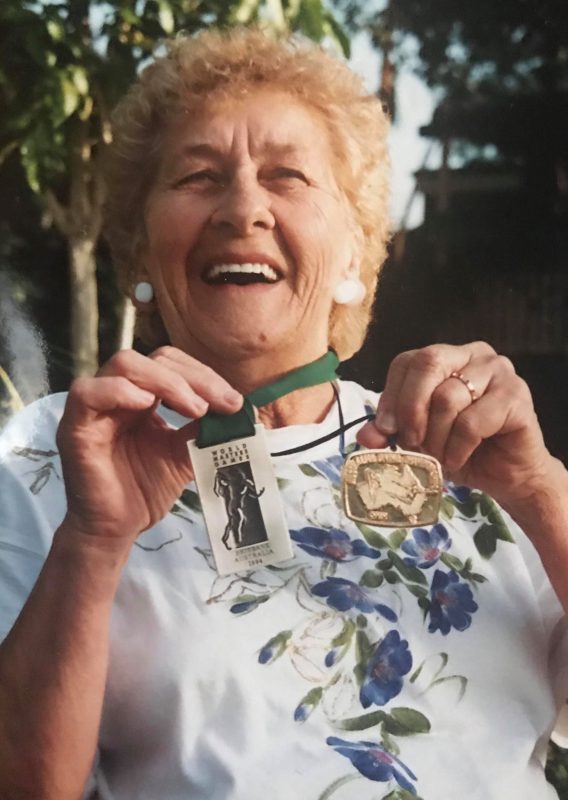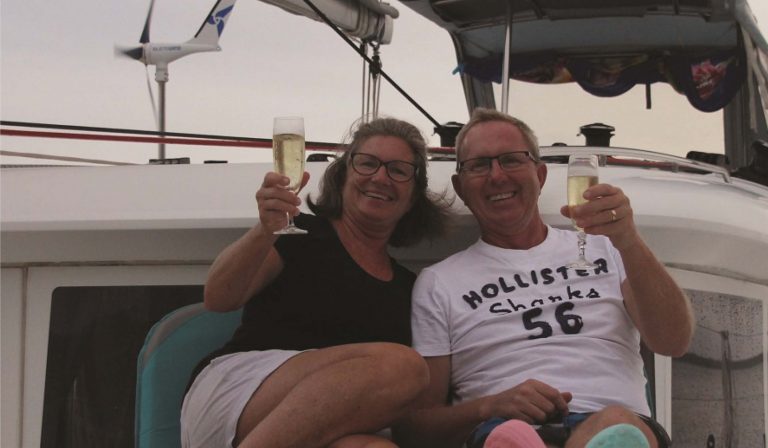Time is a strange beast. There are periods when life seems endless. There’s a speed-bump when you reach forty, then fifty looms up. Before you know it the reading glasses get thicker, and family members start dropping hints about hearing tests. They might also suggest that you slow down a little.
Slow down? At the age of 67, John McEwan, Australia’s oldest Prime Minister, was only just assuming office. John Howard was a year older than that, 68, when he stepped down, and then only because he lost his electorate. Australians now can’t access the pension until the age of 65 (and that will increase over the next few years). Plenty of teachers, farmers, doctors and tradespeople are ploughing on past the age of 70. Some small business owners never really retire at all.
But that’s work. What about fulfilling dreams? And I don’t mean a three-day cooking class at the local TAFE.
Novelist Amy Witting didn’t get serious about her writing until she retired. Her first novel, The Visit, was published when she was 59, and her much more successful I for Isobel came out when she was 71.
Queensland author Don Douglas grew up on a Western Queensland cattle station, then worked as a stockman all over the north, eventually becoming a manager and owner in his own right. Wondering what to do with his time after retiring to Ayr, near Townsville, he set about writing down all the stories he dreamed up on those long hours on horseback. He’s now, at the age of 73, published by Boolarong Press, with three historical novels to his credit.
What about Pearl Heenan, of Ballarat? Growing up in Melbourne, in the 1920s, she used to watch her father dive flamboyantly from the decks of ocean liners moored in Port Philip Bay, some of which were 18 metres or more above the water, just to entertain the tourists. Inspired, she took up the sport, winning a bevy of trophies, as a teen and in her twenties, until family life intervened.
Pearl didn’t return to the sport until long after she had raised her twelve children. She won gold in the Master’s Games at the age of 87 and carried the Olympic Torch through Bendigo at 77. She is now 95 and still going strong, though the diving is “on hold” until she’s ready for a “come back.”
Higher education is no longer the preserve of the young. In fact, as university education becomes more expensive, many people are waiting until their mature years to follow interests or even train for careers that they have always aspired to. Melbourne University is on record as enrolling mature age students up to the age of 75, while a 79-year-old man from Castlemaine, Victoria, is currently studying at the University of New England, Armidale.
“I think my study of Latin has improved my memory,” he was quoted as saying on the UNE website. “It’s been very stimulating and sharpened my faculties all-round. I hope to do two semesters a year as long as I can. I guess I have some unique experiences and wisdom to bring to the group.”
Certainly, retraining for a new career in the 50-65 year age bracket is no longer seen as pointless. Law is a popular choice, as is accounting. Both lend themselves to late retirement and part-time work options.
Yet, for some, coming to grips with the technology integrated into modern higher education, with its chat rooms, online uploads and lectures delivered via the internet can be a challenge. Living

on campus is especially tough: trying to study seriously in a college full of hard-partying twenty-year-olds isn’t fun. Mature age students tend to be highly motivated, and putting up with time-wasting and banter in tutorials can stretch the patience.
Running a half marathon or even just a City to Surf race might seem like a humdrum dream to some, yet fitness is a common goal for older Australians. Sometimes a heart or diabetes scare is enough to induce a man or woman to tie on the running shoes. Losing weight or simply a desire for a higher level of fitness are other driving factors. Most middle and long distance running races have their share of mature runners shuffling along with an idiosyncratic gait, somewhere near the back of the pack.
Figures from the Perth City to Surf 12 km run show that from a field of 14 312 runners, 952 were over 50. Many more competed in the walking category. Swimming, likewise, has a significant participation rate from older Australians. Many can be seen doing laps at local swimming pools, in the thick of it at surf clubs, and joining groups such as the Bondi Icebergs.
Then there’s the tree-changers and sea-changers. Former Qantas-link pilot Helene Young always wanted to live aboard her own boat, write stories and sail around Australia. Taking early retirement, she swapped a house in Cairns for a 40-foot catamaran and she now lives the life she dreamed of, writing books with a mixture of thrills and drama, keeping a host of social media followers enthralled with dramatic photographs from her travels.
I asked Helene Young what it takes to turn your life in a new direction.
“Having a plan was crucial for me, as I knew leaving an established career I loved was never going to be easy. Turning a dream into reality was less a courageous leap of faith and more a considered plan of attack, with achievable goals and milestones. I think the most important part was being flexible and optimistic, and open to learning. Learning, exploring and discovering is what our sea change is all about.”
Others buy caravans and campers and combine travel with lifestyle in that ground-breaking movement known as Grey Nomads. Some travel constantly, others find a picturesque riverbank in North Queensland or the Gulf of Carpentaria and stay put for months on end. Their rigs often include tinnies, shadecloth-floored annexes, solar power systems and tow-along SUVs.
Some Australians, having made themselves comfortable through hard work and dedication, dream of giving back to the world that provided them with so much. Michael H., a retired tradie from Coffs Harbour, now in his early sixties, does a yearly trip to Top End Indigenous communities with a group of like-minded friends, working on houses and improving conditions. Jenny S. was a stockbroker until her life changed in her late fifties. A divorce led to a re-alignment of her priorities, and she ended up spending a full year teaching English to underprivileged children in Myanmar. Many volunteers in medical and logistical aid across the globe, are older men and women who are putting something back.
For most of us, decades of useful time remain after retirement. Plenty of time for dreams. Go skydiving, buy a boat, become a volunteer firefighter, make a movie, start a Facebook page, enter politics, get a degree, move north, go west, become a chef, research your family history, become a pilot. You can be anything. Take a deep breath and do what you always wanted.
All this is great, but if it sounds like too much effort, guess what? If your idea of retirement is just to kick back and enjoy good books, travel, long walks, great food, and the company of your family, that’s OK too. You’ve earned it.
Greg Barron is an Australian author. You can contact him through his website storiesofoz.com
Main Picture: Helene Young enjoying life afloat.




